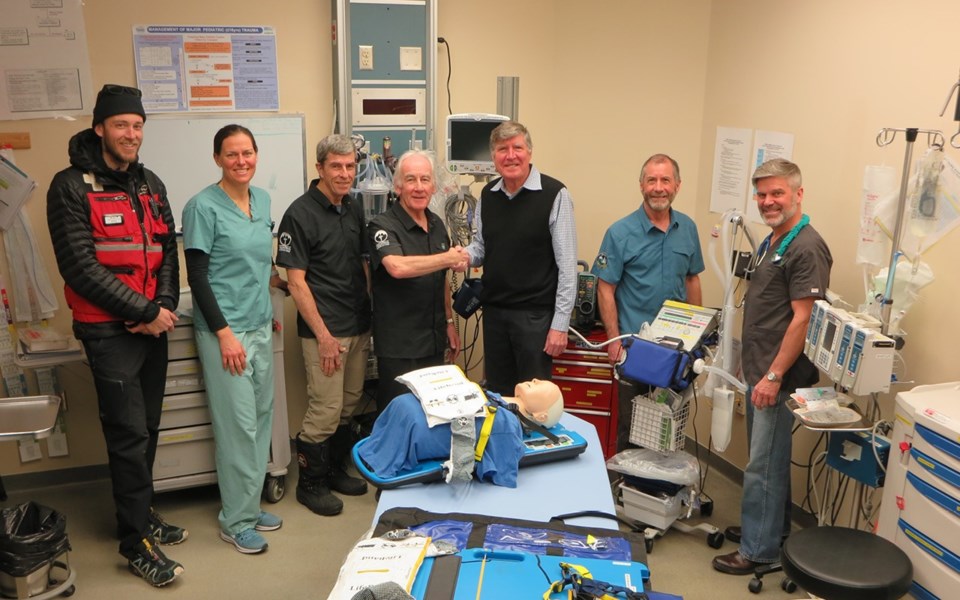The Whistler Health Care Centre is now home to a piece of medical equipment that could end up saving lives in the backcountry.
Earlier this month, a ceremony was held at the clinic to officially mark the donation of an autopulse resuscitation system, the only device of its kind that performs automated CPR. The donation was covered in part by $25,000 in funds raised by local non-profit, the American Friends of Whistler (AFOW), after a request from the Canadian Society of Mountain Medicine. Those funds also covered a second, refurbished device that will be stationed in Squamish.
"When they indicated that it was a machine that would be useful for the community in various areas: search and rescue, and also at the clinic itself, and they didn't have a piece of equipment like it, we just felt it was a donation ... that would help the community and help the people here," explained Gerry Brown, president of the AFOW. "We definitely all thought it was a very positive donation that we should make."
Whether due to fatigue, cramped quarters, or other factors, Dr. Dave Watson, a former ER doctor who serves as president of the Canadian Society of Mountain Medicine, said studies have shown that up to a quarter of people do not receive "appropriate or optimal" CPR. The battery-operated autopulse system, designed by Massachussets-based Zoll, automatically sizes to the patient and is designed for "resuscitation on the move," according to its website. The device has been shown to reduce interruptions in compressions during transport by more than 85 per cent.
"It removes the need for two or three people to be exchanging physical exercise and sweating, and delays (during CPR)," Watson added. "The machine doesn't fatigue. One battery will do 50 to 60 minutes of CPR and we have three batteries associated with each of these devices, so we could theoretically do three hours of optimal, maximal, efficient CPR with no breaks and with excellent CPR every stroke."
Although the devices were acquired in late 2016, negotiations with Vancouver Coastal Health (VCH) delayed the device being stationed at the local clinic until just a few months ago, Watson said. (It was stored at the Whistler Municipal Heliport prior to that.) The device has already been used at the clinic in that time, confirmed a VCH spokesperson.
The idea is for the machine to be used in emergencies by Whistler Search and Rescue and Whistler Blackcomb (WB) as well—although staff at WB has yet to be trained on the device. Asked the reason for the delay, since the device was first acquired more than two years ago, WB spokesperson Marc Riddell said in an email that it was partly due to the integration of WB into Vail Resorts, as well as "vetting the technology, the cost of training, etc." He confirmed that WB intends to start training next year.
"We're always happy to have access to advanced medical technology," Riddell added. "Right now, we don't have any protocols in place to do it, but we will be doing some training to roll it out hopefully next year. It's a fantastic donation and great for search and rescue."
Riddell did note, however, that some details still need ironing out around the logistics of how the device will be accessed from the clinic by organizations such as WB. Watson explained that, during daylight hours, the helicopter pilot tasked with attending the emergency could transport the device. At nighttime, or during inclement weather, the device could be brought up the mountain via lift, or ideally, sled.
For more information on the autopulse resuscitation system, visit zoll.com/medical-products/resuscitation-system/autopulse/ems.




